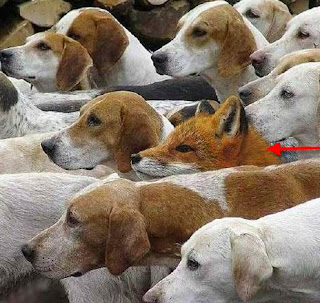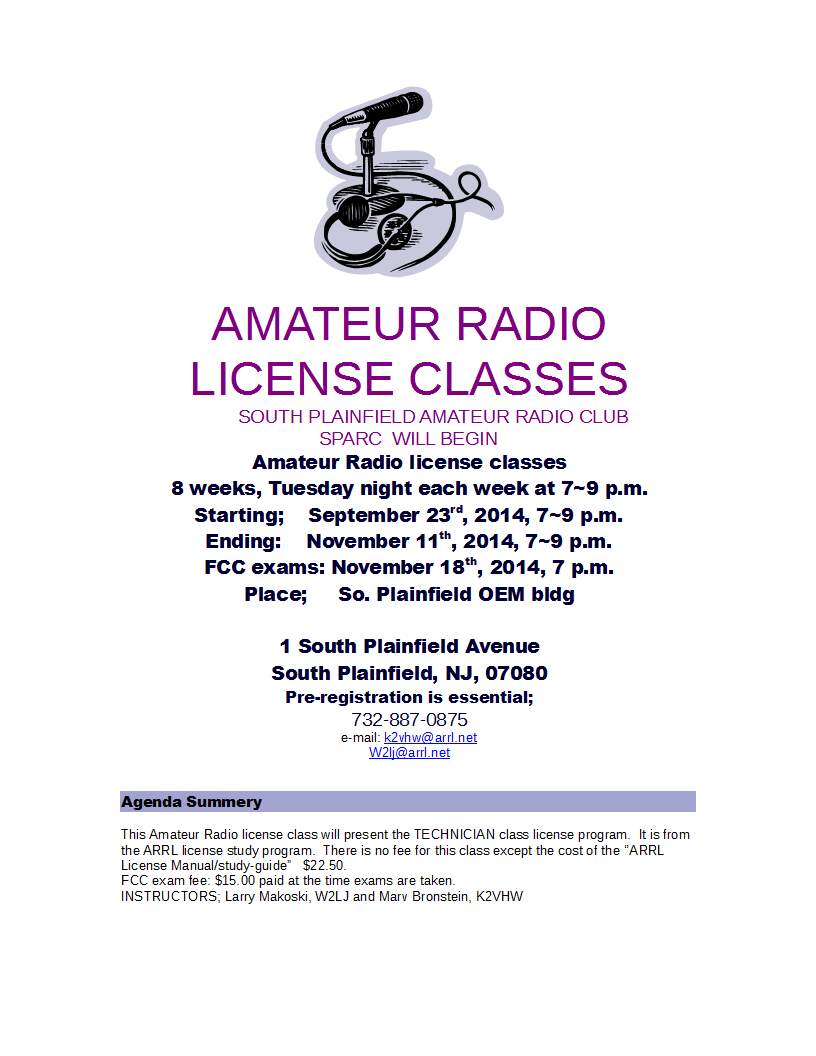Posts Tagged ‘elmering’
 Joy and Disappointment
Joy and Disappointment
It was a bit of a whirlwind evening for me, so I'm a bit shaky on the numbers. Of the 16 student we started with, about 10 showed up for exams last night. Two couldn't make it due to doctor appointments and one get held up at work. What happened to the other three is beyond me. I had everyone's e-mail and was sending out regular announcements. These three individuals haven't come to class for the last couple of weeks. There was no indication of a lack of interest, or lack of understanding the material - so maybe it's been personal issues. Life happens, we all know that, and most people are reluctant to talk about their circumstances.
Everyone who turned out last night earned their Technician class licenses with the exception of two. The two who missed, missed by very little - the bittersweet part. Just about everyone who passed took a stab at the General, and one actually earned it. That was very gratifying.
We have decided to hold another VE session this Saturday morning at 8:00 AM at the EOC. The people who couldn't make it last night will get their opportunity. The people who missed get the chance to dust themselves off and give it another go. And maybe some will return for a second crack at upgrading to General.
Everyone was invited to the monthly South Plainfield Amateur Radio Club meeting tonight. The real "Elmering", the real teaching starts now. It's one thing to help someone to get their license. It's another thing entirely to transform these newbie Hams into confident, knowledgeable, content and active Amateur Radio operators.
72 de Larry W2LJ
QRP - When you care to send the very least!
 Review session
Review session
After each exam was completed, we went over the tests together as a group. It appears that on both exams, no one got more than six answers incorrect. Since a passing grade allows for nine incorrect answers, it would appear that we are looking at a bunch of new Amateur Radio ops as of next Tuesday night.
To break things up a bit, we showed an Amateur Radio video in between the two exams. In all, I thought last night's session was exceptional. Our class members have proven to be eager, bright, inquisitive, and open to what we have been presenting to them.
It has been an honor and a privilege to work with them, as well as with my two fellow instructors, Marv K2VHW and Drew W2OU. These two are amazing Amateur Radio ops and have an amazing amount of experience behind them. The fact that Marv K2VHW is a retired broadcast engineer from WABC with a couple of Emmy Awards under his belt doesn't hurt, either!
I am looking forward to next week, and I just sent the group a final e-mail, detailing what to bring next week and basically telling how proud of them that we are. It's great to be able to help increase the ranks of Amateur Radio. I also reminded them to relax. This is supposed to be fun, and besides, in the scheme of things, it's not like we're looking to cure cancer or end world hnger.
Oh, and by the way, I did work John K4BAI in Georgia, one of the 40 Meter Foxes last night. I tried to work Kevin W9CF in Arizona, but I think the good props between NJ and AZ were over by the time I got home and wolfed down dinner. I see from his Fox log that Kevin worked some NJ stations, but that was while I was still in class. By the time I was trying to work him, he was 229 - 339 at best and I just couldn't make myself be heard. There is nothing more frustrating than calling a station who is sending a CQ in the clear, only to have them resume calling CQ after you send your call!
72 de Larry W2LJ
QRP - When you care to send the very least!
 Priorities
Priorities
 Reaching the halfway point
Reaching the halfway point
In between classes, our students are supposedly doing their reading and we advised them to really begin with the online tests, if they haven't already. They know enough by now, that they should be able to at least get a 50%. I have also been e-mailing video links to them, giving them You Tube videos to watch that hopefully might augment the material we covered in class the previous week.
All this makes me wonder how useful are those HamCram classes that you read about. I've been a VE at a couple and they seem successful enough. I am told that the way it is supposed to work is that the students study the license manual and do all the reading on their own for 8 weeks prior to the cram session. Then the all day (or two day) cram session winds up being a "super review" session where the material is gone over, reinforced, and any questions or unclear concepts are made crystal.
I'm not sure that would have worked for me back in the day when I became a Novice. I liked the fact that there was a licensed Ham that I could go to each week to have as a resource to answer the questions I had - and there were plenty. Plus the fact we had to learn Morse, we needed that weekly encouragement with that, also.
Even though our students are sharp, they still have questions. We clear them up the best we can, so they can move on to the next batch of material without unsettled concepts lurking around in the back of their minds. I'd hate to think of how I'd spend a day (or two) answering 8 weeks worth of unanswered questions!
I suppose if you're a real disciplined, self-starter type that doesn't need the occasional nudge, then a HamCram might work well for you. I am happy with our format, though. I like the idea of getting to know our students over the 8 week period and helping them feel like they're being welcomed into the Amateur Radio community. I am hoping that these students will become way more than that, that they will become my friends who I will get to know even better, and share laughs and Amateur Radio adventures with in the years to come.
72 de Larry W2LJ
QRP - When you care to send the very least!
 School Daze
School Daze
Last night was the second session of our eight week Technician class license class. I think some of our seventeen students walked out of the building with dazed expression on their faces. And I guess that's to be expected right now, as we're out of the introductory "This is Amateur Radio" feel-good fluffy part and we're now into the heart of the course, which is basic electricity and components and all the good stuff.
The concepts of current, resistance, voltage were easily digested by their inquiring minds. The concepts of capacitance, inductance, reactance and impedance? Not so much. But Marv K2VHW and I broke it down into the simplest "lay terms" that we could and I am pretty confident that they have a basic, rudimentary (if not shaky) understanding of the concepts. I am trying pretty hard to find "real world" equivalents that they can relate to, so these concepts don't totally fly over their heads.
I have to admit that back in Ye Olden Days, when I was studying for my Novice license, I wore the very same expression on my face when I left those sessions each Tuesday evening in October and November of 1978.
If you have no concept of electricity and electronics, it CAN seem daunting. But if our students do the required reading, and maybe even do a little Googling on their own, they will have that "Aha moment!" when it all comes together.
As a class, they have several things going for them. The first is that our young students are whizzes at note taking. While Marv is handling the teaching part of a segment, I try to keep an eye on our charges, to watch facial expressions and such. The younger students have their highlighters and pens going at warp speed, taking notes and marking pertinent paragraphs and sentences in their license manuals. The older adult students are no slouches, either. But there's one important difference - their facial expressions are more telling. While the "kids" are sponges, absorbing all this stuff, every now and then, I will see one of the adults screw up their faces as if to say "What?!?" It's at that moment when I will try to pause things for a bit and try to interject an example or some such thing that they're familiar with that brings the concept home to them.
The important thing that we try to stress as much as we can (without beating them over the head with it) is that they HAVE to do the required reading homework. This way, we can answer any questions on any sticky points that they might have. We also give them the reading material that will be covered in the next week's lesson, so that they're not walking into the material blindly.
These two weeks will probably be the very hardest of the eight week class. Electrical concepts and components last night. And next week, electronic and basic radio circuits. After that, we'll get into "the good stuff" - propagation, antennas, operating procedures, setting up a station, etc. That material is probably more in line with what they expected when they were signing up for an Amateur radio course.
I will make it my business during this coming week to make up a handout with some Internet sources that they can refer to in order to make the "meat" that they were fed last night just a little more palatable. As any licensed Ham knows, this is an ongoing process that doesn't end with passing the test. In fact, it's just the very beginning.
72 de Larry W2LJ
QRP - When you care to send the very least!
 Excited
Excited
 Not often
Not often
that I link to an article written for eHam, but here’s a really good one written by Ron KA3J:
http://www.eham.net/articles/32380
It regards Technicians (or any new Hams for that matter, CW and QRP – relevant topics for this blog!) And just to let you know how good it is, up to this point in time, Ron has not been heckled in the commbox!
72 de Larry W2LJ
QRP- When you care to send the very least!















